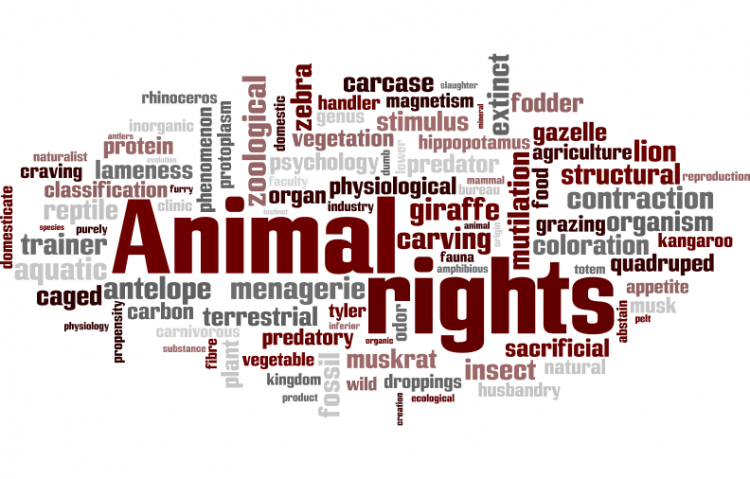
- Target:
- Commonwealth and State governments
- Region:
- Australia
- Website:
- www.kangaroolives.com
In regard to wildlife, contemporary science is underwritten with an ideology which believes in the commodification and management of nature. It follows on from the notion of Aristotle and some religions, that animals exist only to provide humans with food and clothing. This perspective has no place in the 21st Century, especially in the context of the unprecedented ecological crisis. This outdated attitude has negative consequences not only for wild life, but for the quality of life of humanity.
The ideology denies the intrinsic worth of animals. It conceives them merely as objects to be managed, utilised, exploited, tortured, or killed. This attitude is so deep seated and widespread, so embedded in Western civilisation that few scientists have challenged the belief and its methodology. Thus a myth is propagated: that humanity is separate and superior to other animals and nature.
Current scientism is still burdened by the neo-Cartesian notion that animals are more machine-like than consciously aware. This attitude, popularised, makes killing easy, as evidenced by the alarming loss of wildlife worldwide.
12, 259 species around the world are now threatened with extinction including 1,324 Australian species (WWF Australia, 2009). Australia has “the worst rate of mammal extinction in the world”, and the dubious honour of being accountable for “almost 40 per cent of mammal extinctions globally in the last 200 years” (WWF, 2008). For example, on August 1927, in Queensland alone, 800,000 or more koalas were killed. Most Australians now only see a koala in zoos (Fowler, 1993). Currently, many kangaroos such as the Eastern Grey, Euros and red kangaroo are also thought to be over-abundant and around 10,000 per night are killed by commercial hunters. These numbers do not include those killed through government sanctioned culls or death through other means (bush fires and road kill). In NSW alone “more than 104 million native mammals, birds and reptiles have died or will die as a result of clearing native vegetation approved…between 1998 and 2005” (WWF, 2008). Current scientism is incapable of ‘managing’ the environment because of its anthropocentric (human-centred) utilitarian approach.
VOICES FOR CHANGE
In the last thirty years there has been a global coalescence of thought that heralds a new paradigm in our approach to wildlife and our natural environment. The late Val Plumwood, an eminent Australian intellectual, has stated that an outdated form of rationalism views ‘nature to be a passive field for human endeavour’ a manageable order ‘that has no agency or autonomy of its own and imposes no real constraints on us’. She argues that nature has been turned into a commodity for us to buy, sell or consume as we please. There is ‘a deep gulf between those who can own and those who can be owned and exchanged as property, a division of the world into human and non-human...’ (Plumwood, 2002).
SUMMARY
We look toward the development of a new outlook which denies the belief that wildlife and nature exist to be exploited, managed and consumed. Continuing to embrace outmoded paradigms and practices which are devoid of compassion will ultimately lead to a further loss of species, degradation of the environment, and an increase in the suffering of human beings.
We, the undersigned, are appalled by Australia’s history of wildlife abuse.
1. We demand government respect the right to life of Australian native wildlife.
2. We demand government shift its focus from a ‘scientific-only’ approach to a more holistic approach that includes alternative ecological perspectives in its policies regarding the well-being of Australian native animals.
3. We demand government declares that wildlife has intrinsic value and, as such, calls a halt to exploitative practices which involves the suffering of native animals.
4. We demand government restrict the invasion and reckless destruction of wildlife habitats.
5. We demand reparation for those native animals whose habitats have been destroyed; as an aspect of this reparation we demand the government increase the number of national parks, nature reserves and builds wildlife corridors or similar land masses linking wildlife to these places of safety.
6.We demand that government facilitate, through education, community awareness of the ecological crisis all native animals find themselves in, not just those which are listed as endangered.
7. With this in mind, we further demand the Australian government cease government sanctioned culling and commercial killing of kangaroos around Australia forthwith.
You can further help this campaign by sponsoring it
The Stop Australia's Wildlife Slaughter petition to Commonwealth and State governments was written by Ray Drew and is in the category Animal Rights at GoPetition.